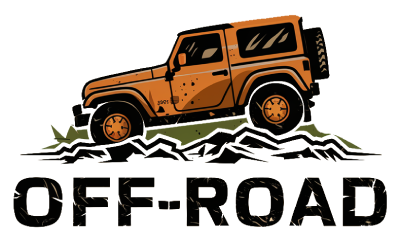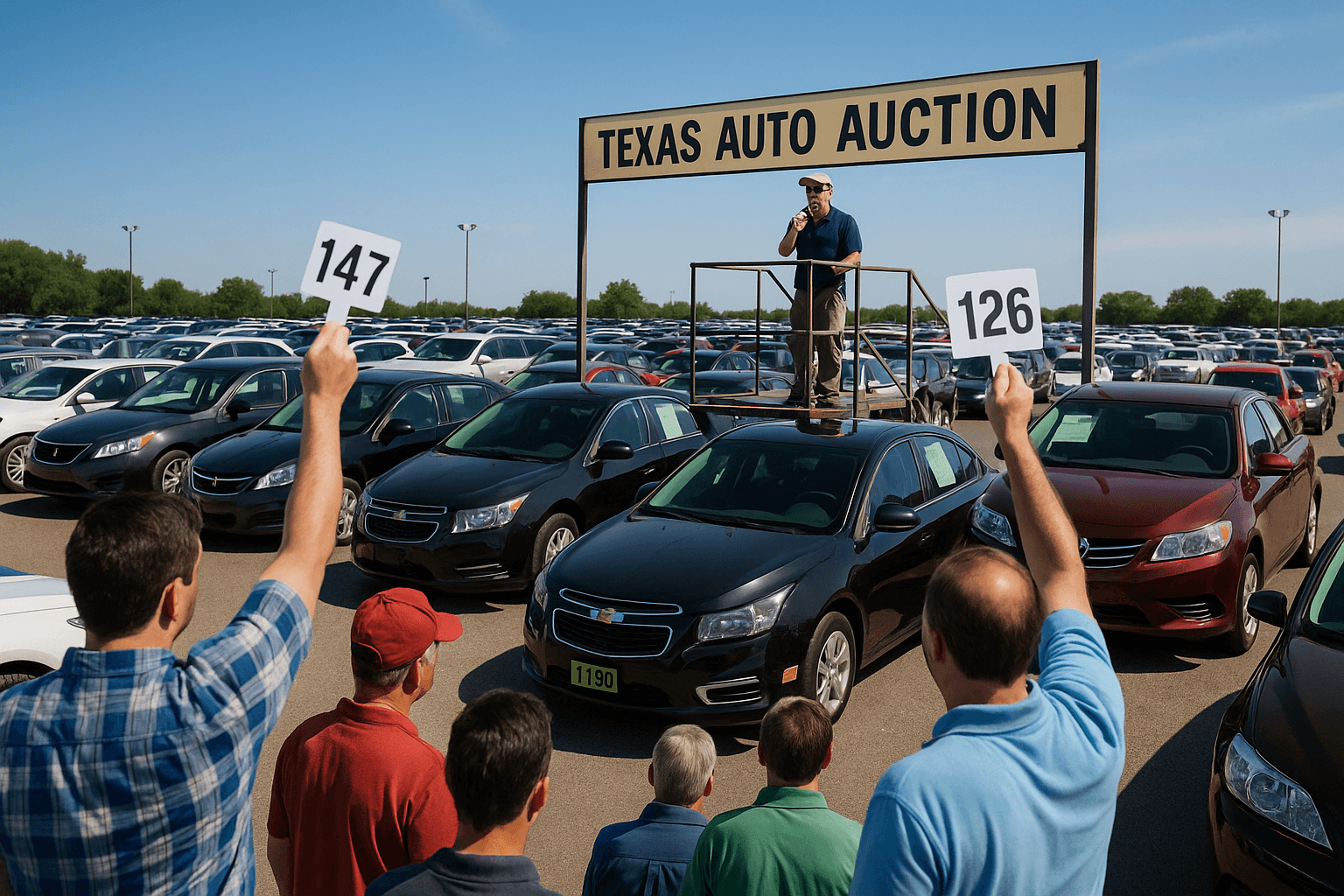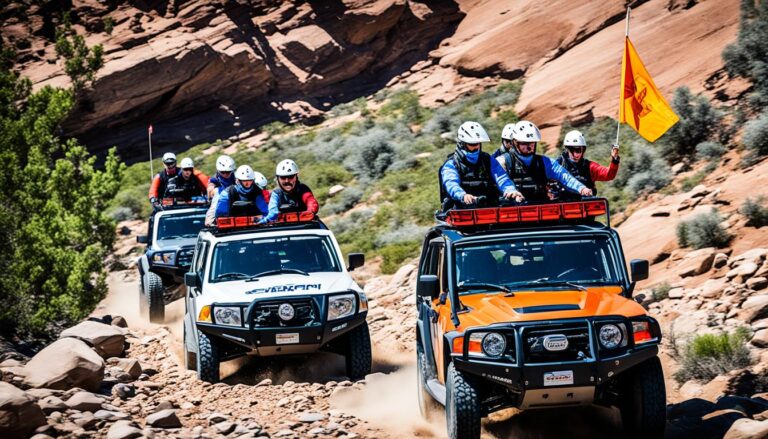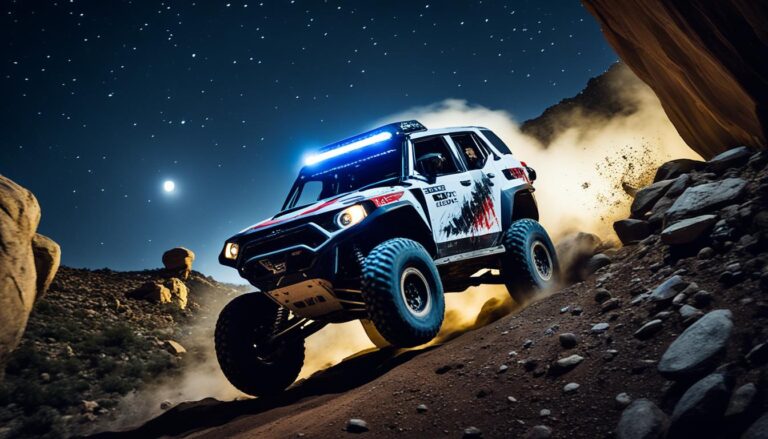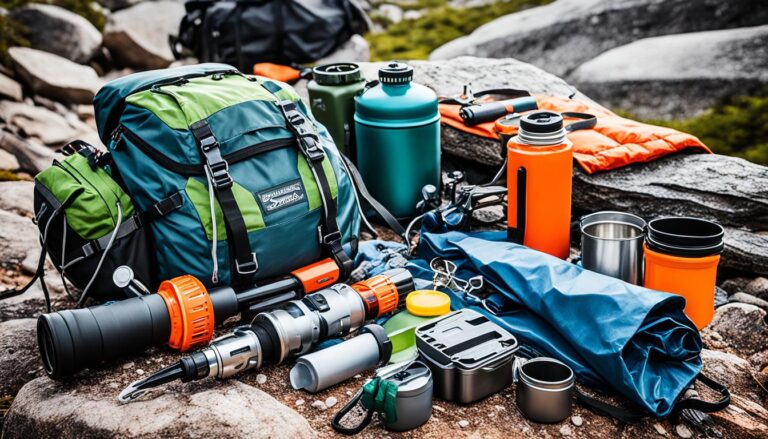How to Apply for a Texas Auto Auction License
Public auto auction Texas participation looks like an opportunity, but behind every successful auction buyer or seller is a legal requirement: a valid license. Whether you’re aiming to flip used vehicles for profit or open your own car dealership, you must get a Texas auto dealer license to stay compliant with the law. Let’s break down how to get a car auction license in Texas, step by step.
“A dealer license is mandatory to engage in the business of selling or offering to sell vehicles,” — Texas Department of Motor Vehicles (TxDMV)
Understanding Dealer License Types in Texas
Before diving into the licensing process, you must know what kind of dealer license in Texas you need. Here are the options:
- Independent Dealer License: Sell used vehicles to the public.
- Wholesale Dealer License: Sell only to other licensed dealers.
- Auction GDN: Sell autos via an auction platform or wholesale auction.
- Franchised Dealer License: Sell new cars from manufacturers.
A General Distinguishing Number (GDN) is required for each category.
Minimum Legal Requirements for Licensing
Here’s what the local DMV expects before approving your application:
- A permanent business location with a visible sign
- Proof of a lease agreement or ownership of the property
- Permanent business structure (no virtual offices allowed)
- Employer Identification Number (EIN)
- Assumed name certificate filed with the Texas Secretary os State (if using a different business name)
- Training course certificate (6 hours)
- Valid Texas auto dealer bond ($50,000 minimum)
- Garage liability insurance
Fail to meet any one of these, and your application will be denied.
Step-by-Step Guide to Getting a Car Auction License in Texas
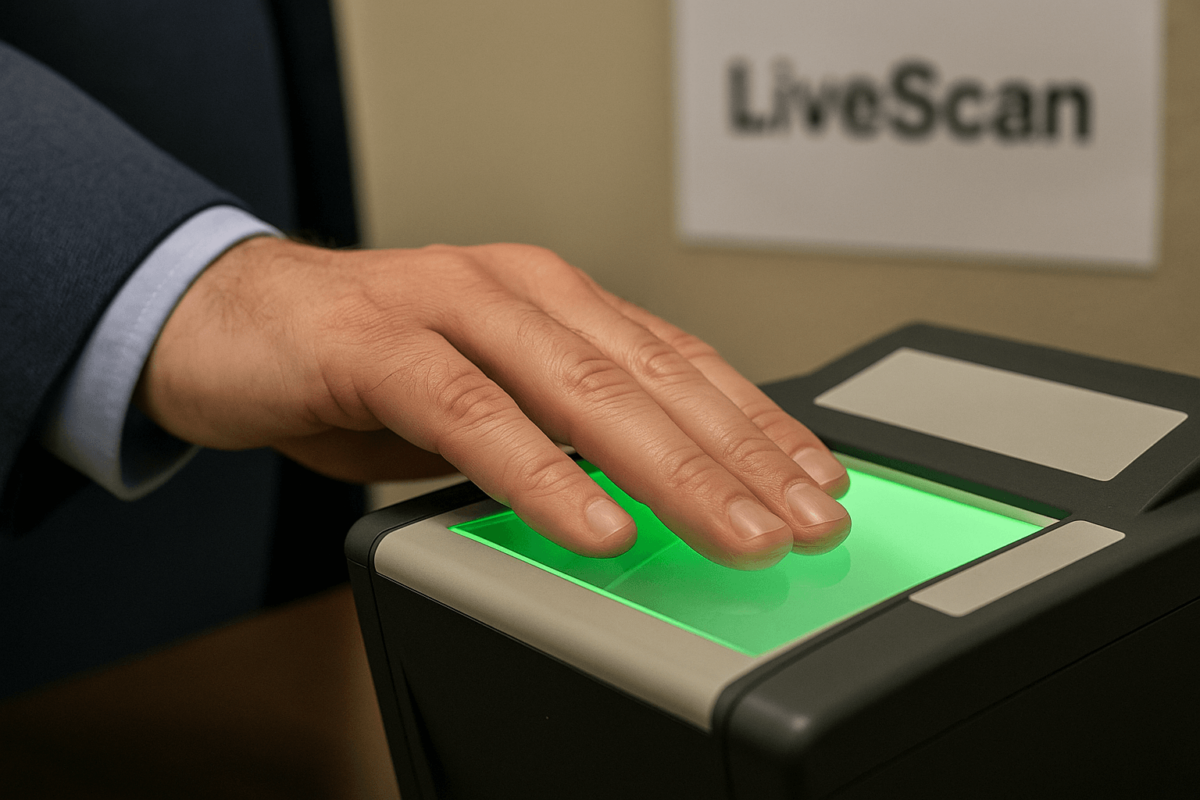
Step 1 – Create an eLICENSING Account
Register with the Texas DMV’s online portal. This is where you’ll manage your car auction license application, renewals, and updates.
Step 2 – Complete the Texas Dealer Education Course
Take a certified online training course. It covers everything from title transfers to consumer rights under the local law.
Step 3 – Set Up a Business Location
Find a compliant space. It must be commercial property, meet zoning requirements, and have posted business hours.
Step 4 – Secure a $50,000 Surety Bond and Insurance
The surety bond requirement protects the public. You’ll also need garage liability coverage.
Step 5 – Prepare Required Documents
Have all documents in digital form: photos of your business sign, lease, insurance, bond, and education certificate.
Step 6 – Submit via eLICENSING
Upload your entire completed application with supporting files. Pay all application fees online.
Step 7 – Pass the DMV Inspection and Get Your GDN
Once the inspection is scheduled, your business location must be fully compliant.
Costs and Fees Breakdown
| Item | Estimated Cost |
| Application Fee (GDN) | $700+ |
| Dealer Education Course | $150 |
| $50,000 Surety Bond | $250–$600 annually |
| Garage Liability Insurance | $1,000–$2,500 per year |
| Renewal Fee (Yearly) | $400–$700 |
Note: Costs vary by provider and coverage.
Location and Zoning Rules You Must Follow
The DMV inspects the business location for zoning compliance. Here’s what’s required:
- Proper zoning classification (check with the local zoning office)
- A posted permanent business sign (minimum 6 inches high letters)
- Clearly visible dealer signs (if issued)
- Business hours displayed
- Space to display at least five vehicles
Texas Surety Bond and Insurance Explained

You need both a surety bond and insurance to get licensed. Why?
The bond guarantees you’ll follow Texas law when selling vehicles. If a buyer sues you, the bond can cover their loss. Insurance protects your lot and inventory.
The bond must list you as a motor vehicle dealer. Choose a provider experienced with Texas dealer license filings.
What to Expect During the Facility Inspection
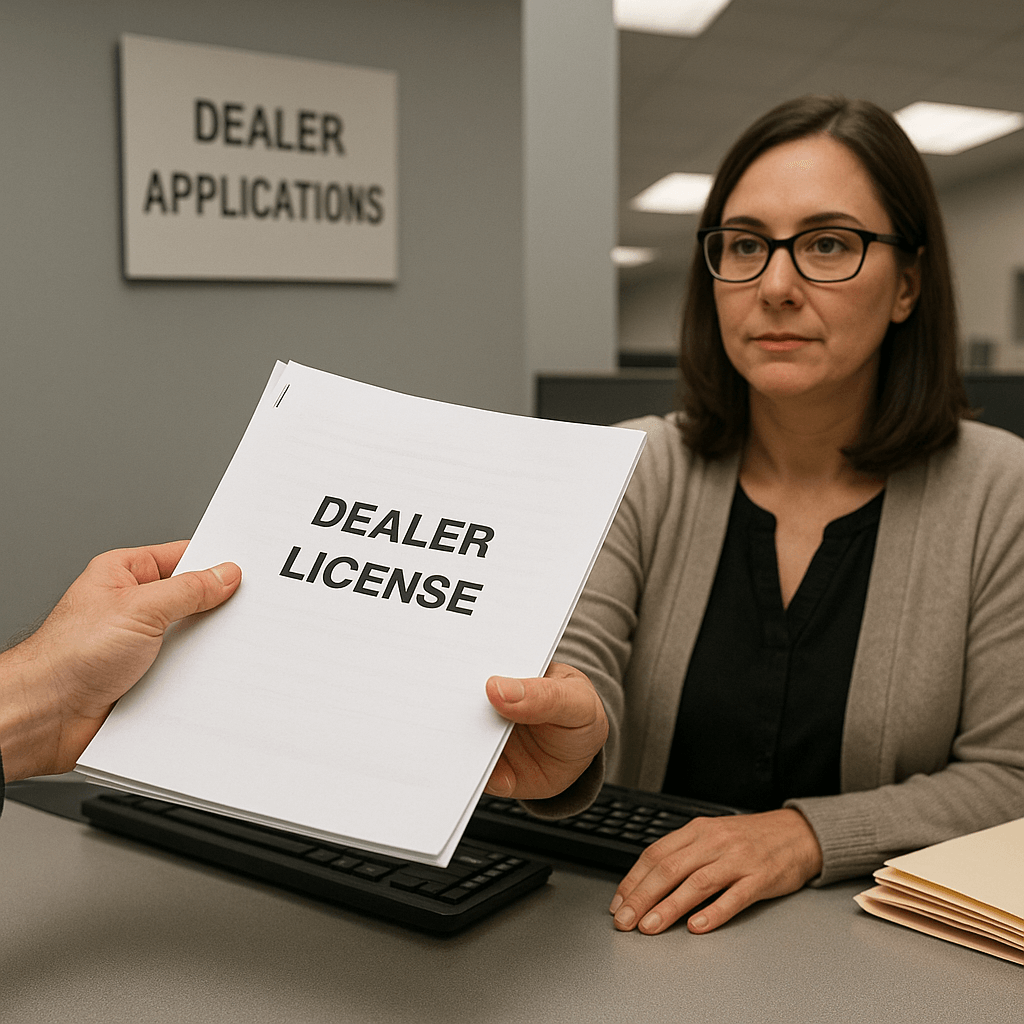
A DMV inspector will check:
- Office space with internet access and power
- Printed motor vehicle license and tax permit
- Logbook or digital record for VINs
- Visible business name signage
- Enough space for used motorcycles, travel trailers, or other types if relevant
Failing this step delays your license.
Using Your License at Texas Auto Auctions
Once licensed, you can access public auto auction Texas platforms and dealer-only auctions. Some auctions (like Copart and IAAI) allow only licensed dealers. Others are open to the public but have limited vehicle access.
Your GDN allows you to buy, sell, and register at multiple auction sites with your dealer number. This makes networking with other dealers much easier for inventory acquisition and sales.
Renewal, Recordkeeping, and Compliance
Every Texas auto dealer must:
- Renew annually through eLICENSING
- Keep 48-month sales and inventory records
- Report sales tax correctly
- Stay compliant with auction-specific regulations
Neglecting these leads to fines or license suspension.
Common Mistakes First-Time Dealers Make
Many auto dealers make costly mistakes:
- Leasing a location that doesn’t meet zoning
- Forgetting travel trailer dealers need their own license
- Choosing the wrong dealer license type
- Missing the surety bond deadline
- Thinking used car sales are unregulated
Avoid these, and your licensing journey will go smoothly.
Starting a Public Auto Auction Business in Texas (Not Just Buying at Auctions)
Interested in running your own auction lot? The process differs from a standard car dealer license.
You’ll need:
- An Auction GDN, separate from a retail or wholesale dealer license
- A licensed Texas auctioneer (registered with the Texas Department of Licensing and Regulation)
- A submitted Form AUC001
- A compliant business location with room for at least five vehicles
- Regular reporting to the Texas DMV
Running auctions means managing logistics, bidders, and reporting rules beyond just holding inventory.
How to Handle Travel Trailers and Recreational Off-Highway Vehicles
If you’re selling travel trailers, neighborhood electric vehicles, or recreational off-highway autos, you must add the correct category to your GDN.
Each category – used cars, used motorcycles, trailers – requires its own designation. Failing to select the correct type during the application process will restrict what you’re legally allowed to sell.
Wholesale Dealers vs. Retail Dealers
Texas recognizes two main license paths:
- Wholesale dealers: Sell only to other licensed sellers, not the public.
- Retail dealers: Sell directly to individual buyers.
Wholesale licenses are simpler but limit your reach. Many first-timers assume they can sell cars to anyone, but without a retail license, that’s illegal under Texas law.
Can You Work From Home or Use a Virtual Office?
No. A home address, virtual mailbox, or shared co-working space will not qualify as a legal business location.
Your dealership must be in a permanent business location, have posted hours, and meet zoning laws. Even licensed Texas dealers can lose their GDN for operating out of an unapproved facility.
Dealer Plates and Inventory Rules
Once licensed, you may apply for Texas auto dealer license plates. These allow test drives and legal movement of inventory.
To qualify, your inventory must include no less than five vehicles on-site. The DMV routinely checks that licensed sellers maintain accurate stock logs for audits.
Selling Salvage or Rebuilt Vehicles? Know the Difference
If you intend to deal in salvage titles or nonrepairable motor vehicles, you’ll need to apply for a separate salvage dealer’s license.
Salvage operations often use auctions, but they follow stricter rules. Misrepresenting a salvage car as clean can result in license revocation.
License Renewal Timeline
The dealer license in Texas is valid for one year. Here’s how to renew:
- Verify business data and documentation
- Submit the renewal fee
- Reconfirm your surety bond and insurance
Missing renewal deadlines could make your GDN inactive, even if you meet every other requirement.
Public Auto Auction Texas Advantage
Once you hold a valid GDN, you’re eligible to access both dealer-only and public auto auction Texas platforms.
Sites like Abetter.bid grant access to a wide range of vehicles, many with low starting bids, making it easier to turn a profit. Use this advantage to grow your dealership network and flip vehicles quickly.
FAQ
How long does it take to get a dealer license in Texas? (People Also Ask)
It typically takes 2–4 weeks to wait for a completed application and get all the inspections passed.
Can I buy cars from Texas auto auctions without a license? (People Also Ask)
You can only buy from public auctions. Dealer-only platforms require a valid GDN.
Can I get a Texas dealer license without a physical lot? (People Also Ask)
No. You must operate from a permanent, approved business location.
Do I need a different license to run my own car auction?
Yes. You’ll need an Auction GDN and licensed auctioneer registration.
What happens if I sell cars without a license in Texas?
Unlicensed sales can result in fines, impounded vehicles, or criminal penalties.
Is pre-licensing education required for all applicants?
Yes. You must complete a 6-hour dealer training course.
Can I use a virtual office address for my dealership?
No. A real, physical, commercial property is required by the local DMV.
How often do I need to renew my dealer license?
Every year. Log in to eLICENSING to file a renewal with updated records.
